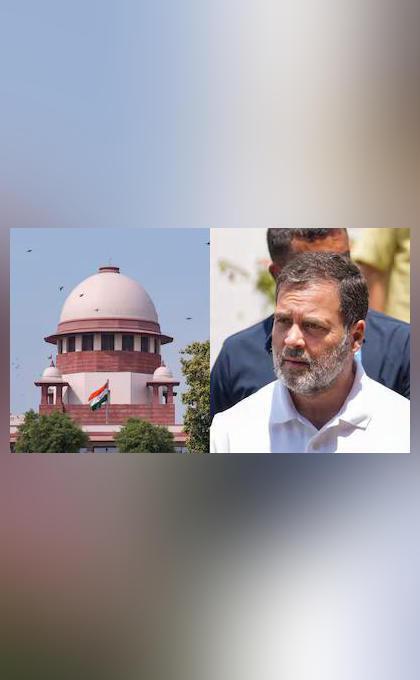
Why Ask on Social Media & Not in Parliament: SC to Rahul on ‘Land Grab’ Claim
In a recent turn of events, the Supreme Court of India has rebuked Congress leader Rahul Gandhi over his claim that China had grabbed 2,000 square kilometers of Indian land. The court’s scathing rebuke came while hearing a defamation case against Rahul for his remarks about the Indian Army. The court has stayed the defamation case, with the next hearing scheduled after three weeks.
Rahul Gandhi’s claim about China grabbing Indian land was made during a speech in 2020, where he alleged that China had occupied 2,000 square kilometers of Indian territory. The remark sparked a heated debate, with many questioning the accuracy of the claim. The Supreme Court’s rebuke comes as a shot across the bow for Rahul Gandhi, who has been accused of making false and inflammatory statements.
The court’s criticism of Rahul Gandhi was swift and direct. As reported by Moneycontrol, the court asked Rahul Gandhi how he knew that 2,000 square kilometers of Indian land had been occupied by China. The court’s skepticism was palpable, with the bench questioning the basis of Rahul Gandhi’s claim. “How do you know 2,000 sq km was occupied?” the court asked.
The court’s rebuke is significant, as it highlights the importance of accuracy and responsibility in public discourse. In an era where social media has become the primary platform for political discourse, it is essential to ensure that the information being shared is accurate and verifiable. Rahul Gandhi’s claim about China grabbing Indian land was made on social media, without any concrete evidence to back it up.
The court’s criticism of Rahul Gandhi is also significant because it highlights the role of Parliament in holding the government accountable. As a Member of Parliament, Rahul Gandhi has access to classified information and official sources of information. However, instead of using his platform to raise questions in Parliament, he chose to make the claim on social media.
This raises important questions about the accountability of political leaders and the role of social media in political discourse. In an era where social media has become the primary platform for political communication, it is essential to ensure that political leaders are held accountable for their statements.
The court’s rebuke is also significant because it highlights the importance of respecting the institution of Parliament. Parliament is designed to be a place where political leaders can raise questions, debate, and hold the government accountable. However, instead of using his platform to raise questions in Parliament, Rahul Gandhi chose to make the claim on social media.
This raises important questions about the role of social media in political discourse. Social media has become an essential tool for political communication, but it is essential to ensure that it is used responsibly. Political leaders must be held accountable for their statements, and the court’s rebuke of Rahul Gandhi is a reminder of the importance of accuracy and responsibility in public discourse.
In conclusion, the Supreme Court’s rebuke of Rahul Gandhi is a significant development in the ongoing debate about the role of social media in political discourse. The court’s criticism highlights the importance of accuracy and responsibility in public discourse, and the role of Parliament in holding the government accountable. As a society, it is essential to ensure that political leaders are held accountable for their statements, and that social media is used responsibly.






